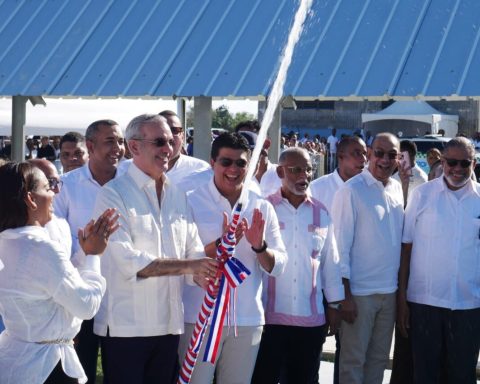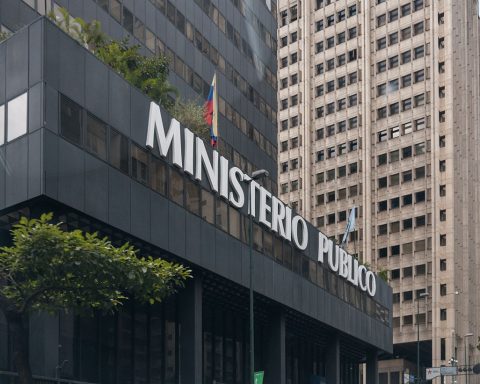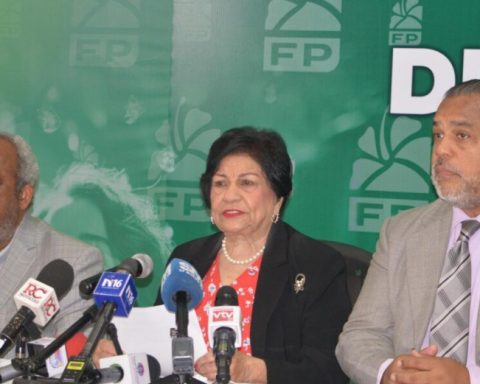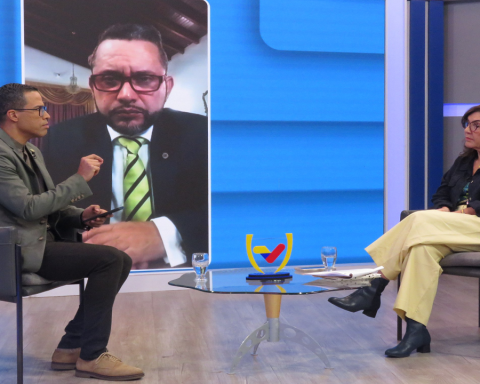From Social Convergence (CS), the party of President Gabriel Boric, they assume that it has been a stormy start to the year, full of complexities, marked by the departure of two of its militants from key positions in La Moneda: Marcela Ríos from the Ministry of Justice and the chief of staff and friend of the President, Matías Meza-Lopehandía. This, after the Head of State recognized “improperties” in his decision to grant pardons, dealing a heavy blow to the community that, for now, will see its participation in the political committee and in the Justice portfolio diminished, classified as “key” to the agenda of Approve Dignity.
In that context, the deputy Gael Yeomans, head of the CS bench, refers to the complex first two weeks of 2023 for the Government, marked by difficulties in the process of granting pardons, the opposition offensive –expressed in the constitutional accusations against Giorgio Jackson and Marcela Ríos– and the challenge of the President Boric to resume the political agenda to advance in the fulfillment of his program. This, in the midst of the eventual empowerment of a Democratic Socialism that does not hide its desire to promote a change of cabinet that allows it to add spaces of power within La Moneda.
Precisely, the deputy for the Metropolitan Region states that she believes -in conversation with The counter– “that the political forces that are part of the pro-government alliance should put support for an agenda that needs to be raised as a centrality”, stating that the differences between the two coalitions are a contribution to the transformation process promoted by the Government, but adds that –in his opinion– everything must be considered from unity. In addition, the parliamentarian criticizes that the opposition is more concerned about the constitutional accusations against Jackson and Ríos – in her opinion, unfeasible – than prioritizing citizen emergencies, such as the security agenda.
-About the departure of Marcela Ríos and Matías Meza-Lopehandía, both members of Convergencia Social, how painful was it for you as a party to face this decision of the President, and what are its main implications?
-Let’s say that it was a rather complex start to the year. The President made decisions that implied complexities, referring to the departures of both Minister Ríos and her chief of staff, which implies a reaction at the moment that I value, but above all I value that the Government does not stop there, but move on with your schedule. And that is the contribution that we make as a party and, as the President’s party, what worries us the most is that the government do well, because that also implies advancing on various commitments that we have acquired, not only with regard to a government program, but also in the context of a cycle of social struggles.
-What is your view on the constitutional accusations against Minister Giorgio Jackson and, specifically, against former Minister Marcela Ríos, whose processing begins this Monday? Do you think they will prosper in the Lower House?
-The first thing, and it is what the commission that is reviewing the accusation against Minister Giorgio Jackson is already doing, is to review the legal arguments, to determine whether or not a constitutional accusation is appropriate, for the aforementioned facts. In our opinion, neither of the two accusations meets that requirement, where we are also concerned that both constitutional accusations are presented in the same month, in addition to other political decisions that are complex, such as the idea on the part of the right to subtract from the security table. All these facts demonstrate a lack of concern with the needs and emergencies that the country has. I believe that in this they should demonstrate the opposite, when we are in the last month before the legislative recess and, for the same reason, the legislative work should be more arduous, and for that you have to dedicate time, and in this I see that some sectors They are not being responsible to the country, putting this agenda ahead, as a priority over citizen emergencies.
-What do you think about the criticism of the political agreement that paved the way for the new constituent process? How do you think you can avoid falling into the same vices and errors of the previous failed process?
-Well, the first thing is to verify that what was agreed was fulfilled, which for us was important, in the terms that were incorporated, both in terms of parity and in participation mechanisms. And, in that sense, we were clear, from the beginning, that the field on which we were going to give these discussions was not a field where we would impose the conditions of the game, but we had to continue playing. In this regard, prioritizing having a Constitution where Chilean men and women can freely discuss the country in which they want to live, without ideological ties of any kind, is what at least for us it was necessary to be able to ensure and, in that line, meet the expectation that this process advances.
-Democratic Socialism has made no secret of its intention to take a greater role in the Government, raising voices that have raised the need for a change of cabinet. How do Approve Dignity observe this action? How necessary is, in your opinion, a change of direction in President Boric’s way of governing?
-Regarding the cabinet, the President has always said that the different government posts are in permanent evaluation, because what matters is that they do what is required in front of the country (…). And we, on the other hand, have said on several occasions that we share the need for this to be a plural government, with a broad base of support, which includes recognizing the contribution of all the political forces that are part of the government alliance, both Democratic Socialism and I Approve Dignity. And I think that it is relevant, regarding the future perspective that one has of being able to consolidate rights and expand democracy, which even surpasses this government alone, in the sense of taking care of that alliance regarding those objectives. Therefore, I believe that we have to work together and cohesively.
-How do you think it is possible to foster a discourse of unity, when the internal environment seems rarefied, with constant disputes in the public sphere and a President involved in conflicts with the other powers of the State? What is, in your opinion, the recipe for designing a new story that allows the Government to reconnect with the citizenry and carry out its program?
-I believe that the political forces that are part of the government alliance should also put the support of an agenda that is necessary to raise as central. That does not mean that one may not have appreciations, concerns and even proposals to strengthen the agenda of the Government and also of each of the cabinets. As the President has said on several occasions, his cabinets are in permanent evaluation, so that the objectives are met, taking into account his work. And in this, the political parties play an important role, which they should assume as such, taking charge of their responsibility so that an alliance takes shape that allows such complex and difficult disputes to take place. I am referring, for example, to the challenges we face in terms of pension reform or tax reform. In order to win this type of reform, knowing that we do not have majorities in Congress, it is necessary to accumulate more strength and generate a process that allows us to have a social and political force that is enough to settle these disputes. The battle is long, and we need to face it united and united, understanding that our differences are a contribution to the process, but from unity.


















